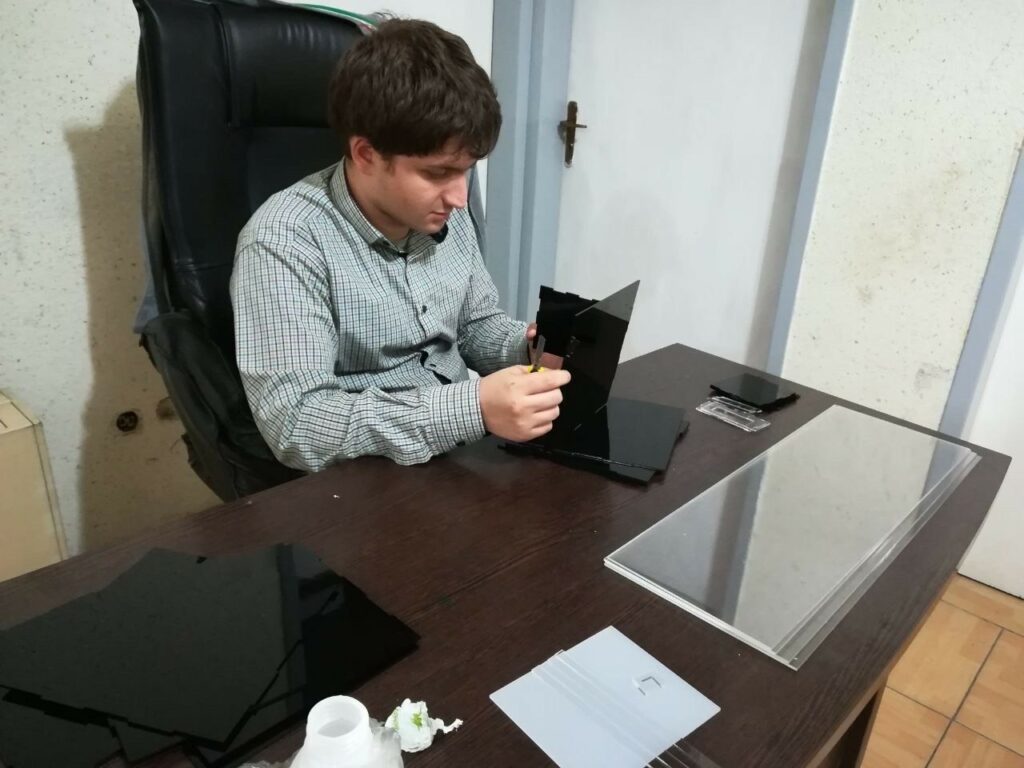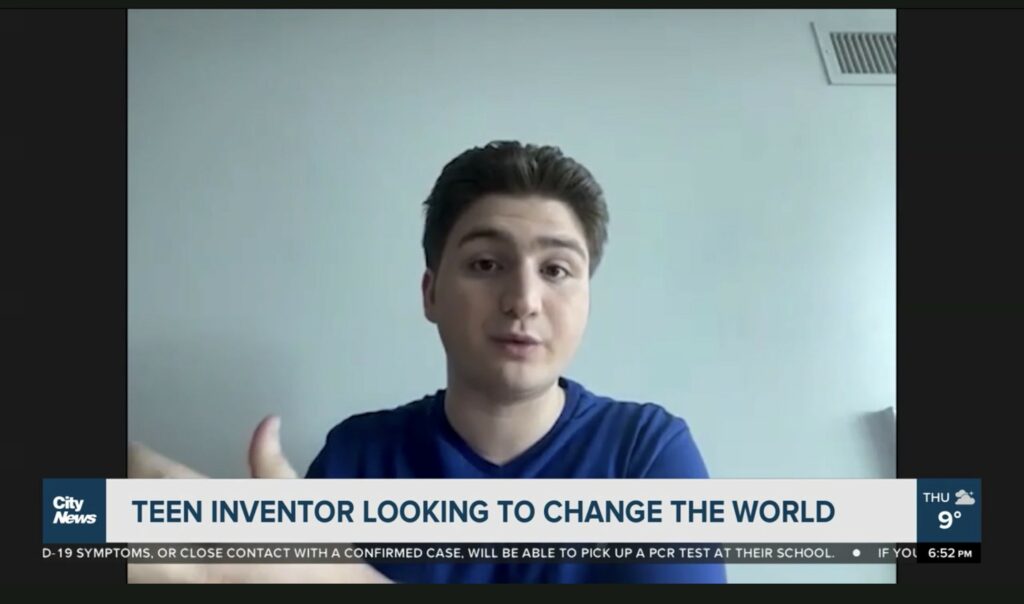
Lassonde electrical engineering student Erfan Nouraee earns a bronze medal for his Photon Detector System at the 2021 International Invention and Innovation Competition hosted by the Geneva-based International Federation of Inventors Association.
By Jenny Pitt-Clark, YFile editor

Canada is well known for its inventors, including such greats as Alexander Graham Bell, James Foort and Rachel Zimmerman Brachman. Now a new inventor is joining their ranks. His name is Erfan Nouraee, and at just 20 years old, he is already commanding national and international attention for his work.
A changemaker in the truest sense, Nouraee is a second-year electrical engineering student at York University’s Lassonde School of Engineering and the inventor of the Photon Detector System. The device received a bronze medal at the 2021 International Invention and Innovation Competition hosted by the International Federation of Inventors Association, which is based in Geneva, Switzerland. The award is big news given that Nouraee’s invention is among the world’s top new devices selected from 650 inventions from 35 countries.
So, what is a Photon Detector System? It’s a revolutionary instrument that addresses a key issue with industrial optical fibre cables. In our everyday lives, optical fibre cables transmit telephone, internet and cable television signals and are an integral component of global communication channels. Despite widespread use, optical fibre cable technology is not perfect and over time can deteriorate. “At the industrial level, optical fibre cables tend to lose their quality and power, but this sensor solves this by providing photon detection and a processing system, including an advanced algorithm, which lessens the noise from optical signals,” explains Nouraee.
The benefits for industry are immense in that this device can extend the lifespan of optical fibre cables, reducing waste and costly replacement and its potential is widespread. “Generally, the Photon Detector System can be used in all industries where an optical fibre communication channel is needed to transmit digital signals with light,” says Nouraee.
Successful inventors seek a need and optimal outcome and find a point of convergence. It is an endeavour that requires knowledge, skill, imagination and blue sky thinking. “There are problems with the optical industrial designs as various phenomena were causing signals transmitted through cables to lose their quality and power, so this invention solves this problem by mitigating ‘noise’ from optical pulses to enhance the quality of the signal output and reduces the noise appearing in optical signal receiver devices,” explains Nouraee.
“At its most basic level, invention is about change,” says Nouraee. He told the Toronto Star newspaper that his work is “about doing old things in new ways, doing new things in unexpected ways, solving old problems with innovative solutions and utilizing technology to improve economic and societal outcomes.”
Nouraee presented his device to the competition after meeting a high bar of entry criteria. An international jury of 35 judges from 30 countries evaluated the submissions. Nouraee’s device required a quorum from the judges for a bronze medal, and it had to meet a lengthy list of criteria. Among the criteria considered by the judges were the invention’s green or sustainable attributes, its commercialization potential and readiness for market, did it meet a public demand, involve high technology, have the potential for economic impact, and was it or could it qualify for a patent.
He successfully met these stringent criteria and received a judges’ quorum. The full name of his award-winning invention is “Photon detector system for the analysis and noise reduction of optical signals carrying digital information.” Its United States Country code and number of his invention priority is US63/218,413 to be used abroad under the Paris Convention, which means it also has received an international patent.
“I’m currently in negotiations with investors and the Government of Canada to commercially manufacture and distribute the sensor,” says Nouraee.

The award reflects Nouraee’s passion for finding innovative approaches to solving problems affecting people’s lives, which is something that resonates in his life and one of the reasons he chose York University for his post-secondary education.
“I’m so proud of being a student at an engineering school whose team always supports young innovators with their research and scientific projects. Lassonde’s incredible team provided me with the resources and feedbacks I needed for my inventions and designs,” says Nouraee. “Lassonde’s engineering courses are amazing. I’ve learned about creative problem solving, engineering design process, project management and entrepreneurship and startup management.
“I’ve learned the importance of sustainability for the future of our cities and communities at York University, and I’m inspired by that to always innovate and advocate for the next generation and for making positive impacts on our planet and environment,” adds Nouraee.
Currently, Nouraee says he’s working on a startup company that will help him monetize his inventions with investment firms or the government. The Photon Detector System is his second invention, and he has many more ideas for new and innovative devices. He’s already planning to patent his next invention in Canada and the United States and hopes to submit it to next year’s IFIA competition in Geneva.
More about the IFIA
The International Federation of Inventors’ Associations (IFIA) was established in 1968 in London by the cooperation of the representatives of seven European countries. IFIA is one of the partners of the International Geneva United Nations Office in Geneva (UNOG). The IFIA has a General Assembly, which includes an Executive Committee and elects the IFIA President and has a special consultative status at the United Nations Economic and Social Council (ECOSOC) and United Nations Industrial Development Organization. The observer at the United Nations Conference on Trade and Development and World Intellectual Property. Organization (WIPO). IFIA is also a member of the Standing Advisory Committee before the European Patent Office (SACEPO).
